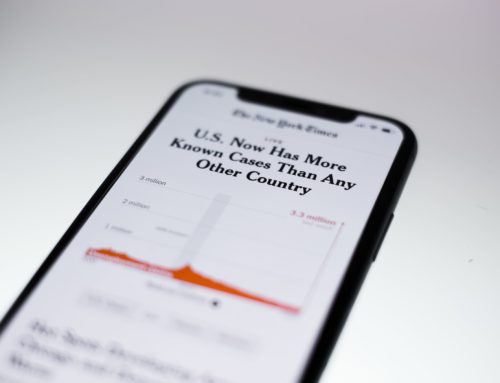Power, Privilege, and Oppression CEUs
Lisa Weems, CI and CT, NIC
Translated by Dr. Lisalee Egbert
 Since 2014, RID has been recovering from organizational crisis and seeking the most effective solutions in defining the organization’s future. One of the primary concerns is membership engagement and the need for deliberate inclusion of members who identify with cultural groups that are divergent from the general RID demographic. The RID leadership recognized the need to explore how individual and organizational responsibility play a role in achieving informed and sustained engagement. The Board sought insight from the membership as to what authentic engagement means at the local, state, and national levels. The response from the membership challenged RID to renew their commitment to membership engagement and deliberate inclusion.
Since 2014, RID has been recovering from organizational crisis and seeking the most effective solutions in defining the organization’s future. One of the primary concerns is membership engagement and the need for deliberate inclusion of members who identify with cultural groups that are divergent from the general RID demographic. The RID leadership recognized the need to explore how individual and organizational responsibility play a role in achieving informed and sustained engagement. The Board sought insight from the membership as to what authentic engagement means at the local, state, and national levels. The response from the membership challenged RID to renew their commitment to membership engagement and deliberate inclusion.
At the 2015 RID National Conference, a motion was presented to the membership that each cycle, 1.0 of the required 6.0 Professional Studies (PS) CEUs be related to topics of Power, Privilege, and Oppression (PPO). The motion was passed with the support of 64% of the membership.
Immediately following the 2015 conference, a workgroup was formed to define the new continuing education requirement as well as develop criteria for meeting the new standards. The workgroup was specifically tasked to identify language that accurately defines power, privilege, and oppression. After a period of research and development, the committee developed a category definition to reflect the educational goals established by the motion. This description refers to the phenomena by which members of a society are unfairly advantaged and fail to recognize that advantage. The result of this is bias at the systemic, societal, and individual level which contributes to microaggressions that perpetuate social and systemic oppression. In addition, topics to be considered as compliant with the new standards were defined. These topics include, but are not limited to: Challenging injustice, Respecting and valuing diversity, Protection of equal access, Social Justice/Liberation studies, Cultural competence, and Identity. This list provides a guideline for activities which can be classified under the Power, Privilege, and Oppression Education/Professional Development category. A full description of the standards as well as the list of guidelines can be viewed by clicking here.
The 2017 Lead Together conference activities and training sessions were designed to help emphasize the shift in focus to the new Power, Privilege, and Oppression standards. The conference included relevant presentations, including “Unpacking Power and Privilege,” by Carla Shird and “Unpacking & Investigating Our Responsibility Within an Inherited System of Unequalized Power: the Interpreter and Deaf ‘Consumer’ Relationship” by Jonathan Webb and Carla Shird. Melvin Walker presented the closing plenary topic, “Translating Wisdom into Action: Where Do We Go From Here?” to discuss strategic planning and how the leadership and membership can partner to bring about necessary change. Each session closed with subsequent group discussions constructed to explore attitudes and practices in the context of PPO and how we as individuals, and RID as an organization, can establish an agenda for change.
The facilitated discussions focused on developing substantiated recommendations that can contribute to RID’s evolution in terms of standards, education, programs, and policy. Some members, for example, proposed that RID leadership become more reflective of its diverse membership and the communities we serve. It was also suggested that RID integrate language supporting diversity and inclusion in guiding documents such as the Standard Practice Papers and the mission statement. Further, it was suggested that RID provide instructional training modules to bring deeper knowledge and guidance to the membership
…as we collectively endeavor to understand, approach, and embrace the widely diverse members of our intersected communities.
These suggestions were presented to the RID leadership to establish a foreground upon which meaningful, integral, and sustainable change can be established.
The suggestions sparked a thrust of action. The Professional Development Committee will add the PPO category to their revised standards and criteria. The RID CMP Program Approved Sponsors have begun approving activities nationwide for a myriad of topics that fall under the new category. Sponsor training is underway, aligned with approving initiatives related to the newly established guidelines. RID is actively exploring ways to develop and deliver training modules centered on cultural diversity and inclusion that will be offered at a future date. Cultural sensitivity and competence is now an integral addition to our organization’s focus.
Implementation of the changes in continuing education will begin with a staggered rollout. As of January of 2019, the new Power, Privilege, and Oppression CEU requirements will be imposed for certified members whose cycle begins January 1, 2019, requiring 1.0 Professional Studies CEUs in Power, Privilege, and Oppression be earned during their new certification cycle. Those certified on or after January 1, 2019 will also be required to earn 1.0 Professional Studies CEUs in Power, Privilege, and Oppression beginning with their first certification cycle. For those who are newly certified with cycles scheduled to begin January 1, 2020 and beyond, the new CEU requirement will go into effect at the beginning of their first certification cycle. If a member’s certification cycle is scheduled to begin January 1, 2021, for example, the Power, Privilege, and Oppression CEU requirement will go into effect for that certification cycle. If a member’s new certification cycle is scheduled to begin January 1, 2022, the new Power, Privilege, and Oppression CEU requirement will go into effect for their certification cycle at that time.
The CEU requirements will apply as each new certification cycle begins. If a member has not begun their new certification cycle, no CEUs with the PPO designation will be listed on their transcript. Further communications will be sent via email, eNews, hard copy letter, and social media to ensure that all members are apprised of the new requirements as well as the relevant protocols.
RID remains committed to cultivating an organizational culture that both honors and practices diversity and inclusion.
We will further honor our commitment by providing content that will focus our endeavors toward growth and change. RID and the PDC are here to support and answer any questions you have. Please do not hesitate to contact the Professional Development Department at cmp@rid.org.
 Lisa Weems, CI and CT, NIC has been interpreting professionally for over 25 years. Her educational background includes a Bachelor of Arts in Sociology, and she is currently enrolled in the Master of Interpreting Program at Western Oregon University, where the focus is on interpreting studies as well as pedagogy. She has done committee work for NYCBDA, NYC Civic Association of the Deaf, and NYRID. In 1999 Lisa began extensive service to NAOBI, first serving in several positions at national conferences, and finally serving as President in 2003. On a national level, Lisa chaired a restructuring committee under President Jackie Bruce and was a member of the bylaws committee. Over the years, Lisa has served on several local committees for PCRID, DCABDA, NAOBI-DC, Greater Baltimore Cultural Alliance, on national committees of RID and CIT.
Lisa Weems, CI and CT, NIC has been interpreting professionally for over 25 years. Her educational background includes a Bachelor of Arts in Sociology, and she is currently enrolled in the Master of Interpreting Program at Western Oregon University, where the focus is on interpreting studies as well as pedagogy. She has done committee work for NYCBDA, NYC Civic Association of the Deaf, and NYRID. In 1999 Lisa began extensive service to NAOBI, first serving in several positions at national conferences, and finally serving as President in 2003. On a national level, Lisa chaired a restructuring committee under President Jackie Bruce and was a member of the bylaws committee. Over the years, Lisa has served on several local committees for PCRID, DCABDA, NAOBI-DC, Greater Baltimore Cultural Alliance, on national committees of RID and CIT.






Leave A Comment
You must be logged in to post a comment.